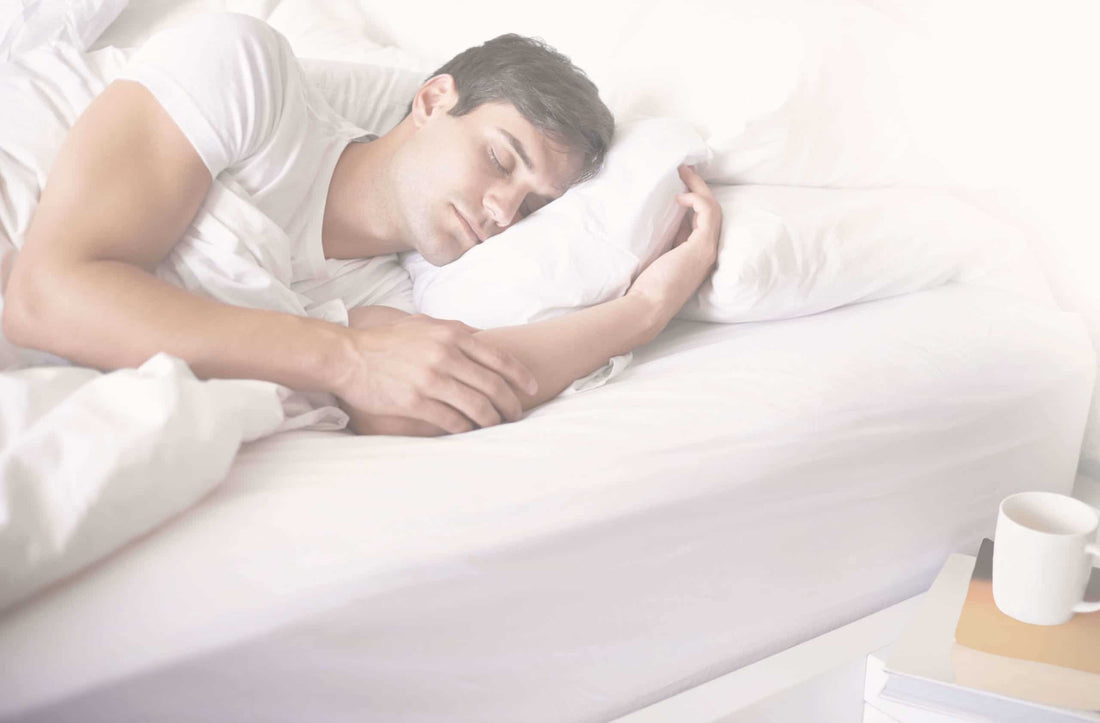- Blog
- News
- Sleep
- Snoring
How to Diagnose & Fix Your Snoring Problem

Snoring effects the sleep quality of both the snorer and their partner; it's one of the biggest contributors to inadequate, interrupted and poor quality sleep on a consistent basis.
A number of factors contribute to snoring, from lifestyle habits through to nasal obstruction and congestion. Essentially, snoring occurs when the snorer opens their mouth during sleep in an attempt to breathe with more ease, this results in the muscles at the back of the throat vibrating and causing the noises associated with snoring.
The health and well-being effects of ongoing interrupted sleep may result in: • Light sleeping, frequent waking during sleep • Daytime fatigue, sleepiness • Mood imbalances, irritability • Concentration, memory and learning issues • Chronic diseases like obesity and diabetes • Relationship problems
Because snoring is the cause of so much disrupted sleep, and impacts individual well-being so significantly, many products and services have attempted to solve the snoring problem, from the non-invasive nature (exercises and pillows) right through to serious surgical procedures and the downright gimmicky. So how do you know where to start and whether a snoring device is right for you?
Why You Might Need A Sleep Aid
Here are some of the more common reasons that may cause people to snore:
1. Determine if there is a pattern to your snoring: do you snore more when you are under increased stress, perhaps from work or study? Is your snoring associated with alcohol or medication consumption? These factors point to a need to adjust some lifestyle factors.
2. Determine if there is a reason why your nose breathing is not efficient during the night: do you suffer from night-time congestion? Perhaps you are suffering from congestion due to allergies or a virus that is affecting your ability to breathe efficiently? Or you may have a structural difference between the two sides of your nose due to trauma (broken nose) or genetics. This could impact the efficiency of your breathing during the night. These factors point to a need to improve nasal breathing during sleep.
3. Determine if your snoring is a serious health condition: Sleep Apnea is type of snoring that is a very serious health condition, characterised by snoring with episodes of gasping and or choking. If you suspect you suffer from Sleep Apnea you should consult your Doctor as a matter of priority.
Choosing the Right Snoring Solution
If your snoring is due to lifestyle factors or poor nasal breathing, you may find that using a snoring aid during sleep helpful in reducing your snoring. Increasing the efficiency of nasal breathing during the night will reduce the propensity of the snorer to open their mouth in an attempt to more easily breathe during sleep. However, devices that concentrate on opening up the nasal airway are often large, intrusive, uncomfortable and unattractive.
When developing their new breathing technology to assist with snoring, Rhinomed considered all the problems with existing nasal snoring devices. The result of their research and development is an ultra-soft, clear nasal device called Mute that gently expands the airway to increase the volume of air travelling through the nose during the night. Increasing the airflow and the efficiency of nasal breathing will mean that if you snore due to congestion or nasal obstruction you will be less likely to open your mouth for easier breathing, reducing your snoring.
If you snore due to lifestyle factors, Mute’s gentle action will help you breathe more efficiently, however, you may also need to address contributing factors such as sleeping position, slack throat muscles or the lower jaw slipping back towards the throat. In this case Mute would combine with therapies such as pillows or mandibular splints (mouth guards) to help keep snoring to a minimum.
Snoring Devices Can Help Your Sleep Quality Too
In November 2014 a Mute user trial was conducted with couples affected by snoring. Mute was found to reduce the incidence and severity of snoring in 75% of users. Needless to say that this reduction in snoring resulted in four times as many partners enjoying good or excellent sleep quality, and 57% of snorers had an improvement in sleep quality too (good/excellent sleep quality).
Mute’s effect on breathing is noticeable immediately, the amount of air flowing through the airways due to Mute’s gentle action is obvious with 78% of snorers reporting better breathing at night.
